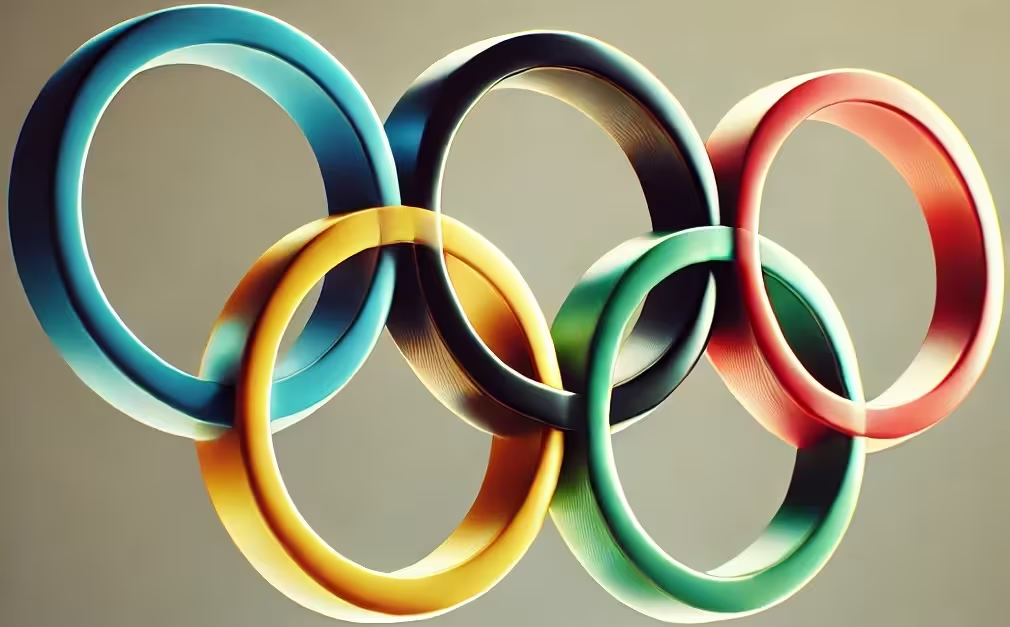The Olympic Games, a tradition from ancient Greece, are more than just a showcase of athletic prowess. They are a powerful symbol of global unity, bringing together nations from every corner of the world to compete in a spirit of friendship, solidarity, and fair play. The Olympics uniquely transcend political, cultural, and social boundaries, fostering global community and shared humanity.
Historical Roots of Unity
The Olympics’ origins can be traced back to 776 BCE in Olympia, Greece, where city-states laid aside their differences to honor the gods through athletic competition. This ancient practice set a precedent for modern Olympic ideals, promoting peace and cooperation among diverse groups. Pierre de Coubertin’s revival of the Olympics in 1896 was grounded in the belief that sports could bridge gaps between nations and cultures, encouraging mutual respect and understanding.
Modern Olympics: A Platform for Unity
Promoting Cultural Exchange
One of the most significant aspects of the Olympics is the opportunity for cultural exchange. Athletes and spectators from around the world come together, bringing with them their unique traditions, languages, and perspectives. This cultural melting pot fosters mutual appreciation and respect, breaking stereotypes and prejudices.
The Olympic Village, where athletes reside during the Games, epitomizes this cultural exchange. It is a microcosm of the world where individuals from diverse backgrounds live, eat, and train together. This environment encourages friendships that transcend national borders, exemplifying the spirit of global unity.
Showcasing Global Talent
The Olympics provide a platform for athletes from all nations, regardless of their economic or political status, to showcase their talents. This inclusivity reinforces the idea that excellence in sports is not confined to any country or region. The success stories of athletes from underrepresented nations inspire millions, demonstrating that determination and hard work can lead to greatness.
Unifying Spectators Worldwide
The Olympics also unite spectators around the globe. Billions of people watch the Games, sharing in the athletes’ triumphs and heartbreaks. This collective experience fosters a sense of global camaraderie as people from different backgrounds come together to celebrate human achievement.
Inspirational Stories of Unity
The 1936 Berlin Olympics
The 1936 Berlin Olympics, held in Nazi Germany, were marked by significant political tension. However, they also provided a powerful story of unity and resilience. African-American athlete Jesse Owens won four gold medals, challenging the Nazi ideology of racial superiority. Owens’ triumph highlighted the absurdity of racial discrimination and inspired a generation to fight for equality and justice.
The 1992 Barcelona Olympics
The 1992 Barcelona Olympics were notable for the participation of a unified German team and the debut of athletes from the former Soviet republics competing as the Unified Team. These Games symbolized the end of the Cold War and the beginning of a new era of cooperation and unity in international sports.
The Refugee Olympic Team
In recent years, the introduction of the Refugee Olympic Team has underscored the unifying power of the Olympics. This team, composed of athletes displaced from their home countries due to conflict or persecution, competes under the Olympic flag. Their participation sends a powerful message of hope and resilience, reminding the world of our shared responsibility to support those in need.
Challenges and Criticisms
While the Olympics have a profound potential to inspire unity, they are not without challenges and criticisms. Issues such as political boycotts, doping scandals, and the commercialization of the Games can undermine their unifying mission. The immense cost of hosting the Olympics has also led to debates about their economic impact on host cities.
Despite these challenges, the core values of the Olympics—excellence, friendship, and respect—continue to resonate with people worldwide. Efforts to address these issues and ensure the Games remain a force for good are ongoing, highlighting the commitment to preserving the Olympic spirit.
How to Watch the Paris 2024 Olympics
The upcoming Paris 2024 Olympics promises to be a spectacular celebration of sports and unity. With cutting-edge technology and widespread media coverage, viewers worldwide will have numerous ways to follow the events.
Television Broadcasts
Major television networks globally will broadcast the Paris Olympics. NBC will provide extensive coverage across its channels in the United States, and the BBC will offer comprehensive broadcasts in the UK. Viewers should check their local listings for specific channels and schedules.
Online Streaming
Many networks offer live streaming services for those who prefer online streaming. NBC’s Peacock platform and the BBC iPlayer are excellent options for watching the Games live. The official Olympics website and app will also provide live streams, highlights, and replays.
Social Media and Digital Platforms
Social media platforms like YouTube, Facebook, and Twitter will feature live updates, highlights, and behind-the-scenes content. These platforms are great for staying connected with the latest developments and engaging with other fans.
Tickets and In-Person Viewing
Tickets can be purchased through the official Paris 2024 Olympics website for those fortunate enough to attend in person. Attending the Games offers a unique opportunity to experience the atmosphere and excitement firsthand and witness the unifying power of the Olympics in action.
Conclusion
The Olympics are more than a series of athletic competitions; they are a testament to the enduring human spirit and our capacity for unity and cooperation. From their ancient roots to the modern Games, the Olympics inspire us to look beyond our differences and celebrate our shared humanity. As we look forward to the Paris 2024 Olympics, we are reminded of the power of sports to bring the world together, one competition at a time.
For more information on the Paris 2024 Olympics and how to watch, visit Olympics.com and NBC Olympics.
•

Leave a Reply
You must be logged in to post a comment.